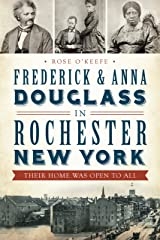Personal posts by public historian, Rose O'Keefe
Farming Trends
How I’ve enjoyed reading The Old Famer’s Almanac over the years. The 2023 edition was full of surprises. The farming section had varied and delightful briefs: a seaweed farm in North Haven, Maine, started by a woman from a lobster fishing family; Norway House, a Cree Nation hydroponic project that sells lettuces, kale, pak choi and herbs to 8,000 neighbors, year round in Manitoba; Norma’s Produce, a farm that two migrant workers took over in Colonial Beach, Virginia, that now sells 40,000 pounds of fruits, vegetables and herbs at area farmers’ markets; Gill Family Orchards in British Columbia, owned and operated by an immigrant from the Punjab region in India, that now has 100 acres of vineyards and orchards; a 12-acre certified organic farm in Beamsville, Ontario, that shreds grapevines, brush and leaves and brews them into a compost tea to spray on the soil; and Askin Land and Livestock in Lusk, Wyoming, which started with a dream to buy a farm, instead leased land, and now manages 75,000 acres of leased land offering custom grazing.
Contrasts
How wonderful to read in the Christian Scientist Monitor Weekly Aug. 8 that over 300 Indie bookstores opened in the U.S. in the last two years and 80% had higher sales last year over the previous one. Also, Black-owned bookstores grew from 54 to 111 last year. Marvelous! The Over Heard page highlighted the election of Droupadi Murmu as India’s 15th president in July. President Murmu is the first tribal president and second woman president. Why did it surprise me to learn that India has 104 million tribal people?
Summer Time
It’s happening: after hot and humid weather last week, we’re having days with highs around 80 and lows near 60 that make Rochester such a wonderful place in the summer. The puffy white clouds and crisp blue skies are a delight to the heart and soul, and later sunrise and earlier sunset are barely noticeable. Quite a few of the events in the 1938 Newbery Award winner Thimble Summer by Elizabeth Enright, took place outdoors in summer on a family farm in Wisconsin. The childhood innocence of a tomboy was set during a heatwave and drought, outside a small town, with a variety of believable neighbors and townspeople. While it accurately described an honest hard-working farm family with their struggles and joys, it was also euro-centric in a way that occasionally came off as dated. The wishes and misadventures of headstrong unladylike girl are still something to think about. On to the Newbery for 1939.
Set In Our Ways
The July/August issue of Poets & Writers gave a short tribute to Muriel Rukeyser, who in 1949, wrote of people’s fear of poetry. With eradicating that fear in mind, the editors of rinky dink press publish poetry micro zines, tiny booklets 2.75” x 4.25”. Phoenix poet laureate, Rosemarie Dombrowski started it in 1915 at Arizona State University when a final class project was so popular, it gave birth to a micro press. Eighty micro zines later, rinky dink is now run by Dombrowski and Shawnte Orion. Each zine is made by hand from treeless sugar cane-waste paper, with a first run of 25 copies. Since the pandemic rinky dink has done 10 a year. “We love being surprised by brilliance in all its forms,” Dombrowski said.
Easy Does It
The heat and the humidity have kicked in, making it a good time to sort through the pile of magazines on the coffee table. This is from the July issue of The Writer: “Off the Shelves, 7 Literary Lessons from Author-Owned Bookstores.” What smart coverage of Parnassus Books in Nashville, Books & Books in Key West; An Unlikely Story Bookstore and Café; Birchbark Books and Native Arts, Minneapolis; Uncle Bobbie’s Coffee and Books, Philadelphia, Books Are Magic in Brooklyn, and Beastly Books in Santa Fe. No two author-owners alike. Wow!
Eaarly Birds
The early birds are still calling out at the break of day which has moved so gradually to after 5:30. I must have childhood memories of early mornings with marvelous cool breezes that have me convinced summer will last forever. So far, my city garden is holding its own. During the afternoon heat last week, I made it through the 1938 Newbery Award winner, The White Stag by Kate Seredy. It’s a dramatic tale about the Huns and the Magyars’ trek from ancient lands no longer remembered, westward to promised lands.
While We Can
In the paid obit in Tuesday’s Rochester Democrat and Chronicle for 29-year RPD officer Anthony Mazurkiewicz the family said: “In Tony’s honor, please take an extra evening to cancel whatever else you had planned and instead share a good meal, stories and laughs with your family. What we wouldn’t give to spend even one more might like this with him.” There is something about magnificent summer weather that makes it seem like it will last forever. So too, with those close to us. Let us enjoy both while we can.
My Two Cents
What a pleasure to read today’s front page article in the Rochester Democrat and Chronicle: “Planting Opportunity” by Justin Murphy. As part of its plan to develop a fuller tree canopy, the city of Rochester is considering using fruits that can give food as well as shade. As someone who has tried out many things in 50 years of city gardening, I’d like to add my two cents. It’s taken me at least 10 years to improve the soil in several backyards, and so far I’ve done that in three.
Summer Reading
Even with air conditioning, there’s something about the heat that changes everything. Whatever progress I’ve made in the garden happens early in the day or not at all. Whatever chores or errands I have happen early or not at all. There’s a part of the afternoon when the crush of the heat makes all plans evaporate. I started Caddie Woodlawn by Carol Ryrie Brink (1935) at night, and got so caught up in it, I read it straight through.
Kindness Remembered
The Rochester Democrat & Chronicle outdid itself today with a full-page obit for James Goodman, a retired D&C reporter. The outpouring of comments from those who knew him attested to Goodman’s kindness in the thick of a busy newsroom. Gary Craig’s coverage of this dedicated advocate for underdogs, was a reminder of what good community coverage is all about. Thank you.
Changing Times
Laura Adams Armer’s Waterless Mountain (1931) gave a profound, respectful view of Navaho life in Arizona in the 1920s. It showed Younger Brother’s growth into a skilled medicine man. The Navaho’s way of life seemed so sane, sensible and good. The contrast between that, wacked-out American tourists and one messed-up community member was well done. An archaeologist’s theft of precious artifacts had a painful ring of truth. Poetry and black-and-white illustrations added to its charm.
Misnaming Things
A Different View
Elizabeth Coatsworth’s The Cat Who Went to Heaven (1930) was everything I could want in a short book. The story of a poor Japanese artist and a new cat in his house was a touching tale of learning to let go of long-held ideas ingrained by his community. He had trouble liking the cat in question, Good Fortune, because he had been told that cats were evil. This gently paced story with marvelous illustrations ended magnificently. It was the 1931 Newbery Award winner.
World Treasures
The Economist had four notable obits honoring women lately. Cristina Calderon, 93 (March 5) was the last full-blooded member of people from Tierra del Fuego, at the tip of South America. By the time she was born in 1928, the Yaghan population had dropped from 3,000 in the mid-1800s to 100. The Yahgan still lived by the old ways of half on the sea and half on land. Cristina was orphaned at 6, lost three partners, had nine children and got relocated to government housing. Abuela Cristina was eventually dubbed a national treasure by the Chilean government. She and her granddaughter spent years compiling a Spanish-Yaghan dictionary, running workshops and making recordings. She wrote a book of Yaghan legends in 2005. What a gem!
On Juneteenth
Yes, it is momentous that Juneteenth has become a national holiday. But. Having Father’s Day and Juneteenth on the same day yesterday felt confusing. The topic of fatherhood can be complicated. Emancipation can be one heck of a touchy subject. I believe a focus on healing and celebration is the way to go. Hmph.
TA DA!
History Repeats Itself
The opening paragraph of The Trumpeter of Krakow (1929) blew me away: “It was in the spring of the year 1241 that rumors began to travel along the highroad from Kiev in the land of Rus that the Tartars of the East were again upon the march. As the weeks went on, the rumors grew thicker and there began to come through to Poland, our land of the fields, the news that the country lands of the Ukraine were ablaze.” What chilling words!



